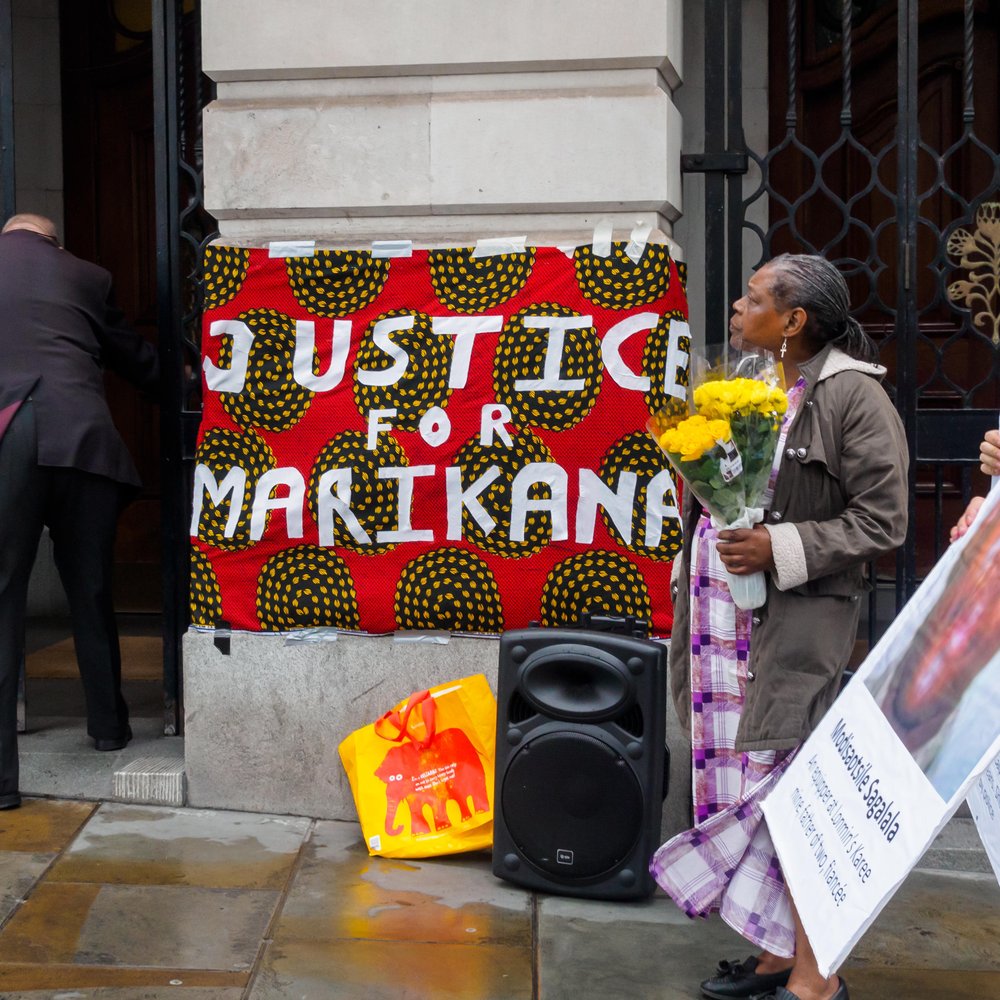Corporate remedy and accountability a decade after the Marikana Massacre

Alamy
Today, 16 August 2022, marks the 10th anniversary of one of the deadliest episodes of violence in South Africa since the end of the Apartheid in 1994: the Marikana Massacre. In the early days of August 2012, workers of Lonmin Plc, a platinum mining company, staged an unprotected strike to demand a salary increase and protest against their poor living and working conditions. The mine did not provide adequate housing and many lived in informal settlements with no basic services. As the days passed, tensions escalated and 10 people were killed in clashes between the striking and non-striking workers, security guards and the police. Eventually, on the afternoon of 16 August, with no prior warning and no violence in the preceding 24 hours, the police opened fire with live ammunition on a crowd of hundreds of workers who had gathered on a small hill near the mine. Thirty-four miners were killed and 78 were injured.
An inquiry commissioned by the state established the company did not provide “sufficient safeguards and measures to ensure the safety of its employees” and that its “failure to deliver on its housing obligations created an environment conducive to the creation of tension”. Furthermore, it “did not use its best endeavours to resolve a dispute”, and had urged the state to respond to the protests as a criminal issue, rather than a labour issue. The company aggressively lobbied the state to, in the words of its CEO, “bring the full might of the state to bear on the situation”. The current president of South Africa, Cyril Ramaphosa—then board member and shareholder at Lonmin—pressed for “concomitant action” against the “criminal” protesters.
The UN Guiding Principles on Business and Human Rights (UNGPs) establish that companies, as part of their responsibility to respect human rights, should provide for or cooperate in the remediation of adverse impacts which they have caused or contributed to. Since 2012, Lonmin and its successor Sibanye-Stillwater have undertaken various initiatives to support the families of the 44 deceased. These initiatives included the provision of houses for widows, the establishment of a trust fund to support the education of orphaned children, and the provision of employment to relatives of those killed. The company also engaged in annual commemorations and constructed a memorial wall within company facilities bearing the names of the 44 victims.
Although these initiatives have provided some relief to victims, they have resulted in disputes, as well as re-victimisation for some. Promised houses were systematically delayed; policy to assign them was unclear, and many were built in places where families did not want to live. Others insisted the provision of employment was not acceptable as “even the work they gave us, we use our strength”. The “Wall of Remembrance” was also controversial due to its form and location in an area where victims and their families could not freely access.
These corporate initiatives have taken place at a snail’s pace for over a decade and in a context where the state has been dragging its feet in meeting its obligation to repair and deliver accountability. Unsurprisingly, victims and survivors have been driven to a state of anger, frustration and despair.
Furthermore, the company never engaged with injured workers, many of them enduring severe and chronic injuries, and on different occasions did not facilitate the attendance of court hearings for some of its workers when the suspected perpetrators were brought to trial.
In sum, many victims have experienced these initiatives as authoritarian and arbitrary, and criticised the lack of avenues to participate in their formulation and design. These corporate initiatives have taken place at a snail’s pace for over a decade and in a context where the state has been dragging its feet in meeting its obligation to repair and deliver accountability. Unsurprisingly, victims and survivors have been driven to a state of anger, frustration and despair.
The Centre for the Study of Violence and Reconciliation and the University of St. Gallen have conducted more than 40 interviews with key stakeholders, including victims, their attorneys, community activists and company representatives. Taking into account these interviews and the company's responsibility to provide remedy, we recommend the company should:
- Settle legitimate claims against the company; facilitate access to attend court hearings for families and workers; support calls for the state to expedite criminal cases.
- Ground its initiatives in acknowledgment and apologise for its role in the massacre, acknowledging of the rights of victims.
- Engage in more participatory, inclusive, comprehensive and gender-sensitive reparations that better respond to the needs and experiences of victims.
- Include injured and arrested miners in the reparative initiatives and address their specific needs.
- Engage in commemoration and memorial efforts with collaborative processes of conceptualisation, development and implementation processes. Use the company’s leverage with the state to support memorialisation initiatives at the site of the massacre, encouraging the state’s full participation in these initiatives.
- Support initiatives which advance development and community healing as part of a collective reparations process—for example, by tackling the still-vivid social and psychological consequences of the massacre—and support and invest in collaborative economic development in the area.
- Commit to addressing the underlying causes of the conflict, including low wages and lack of access to basic services, and formalising these development commitments within its Social and Labour Plans lodged with the state.
Sibanye-Stillwater, the successor of Lonmin, must understand that delivering corporate reparations is not simply a matter of solidarity and compassion. Until it frames its initiatives as a form of justice that responds to victims’ rights, its human rights responsibility to remedy will remain unaddressed.
For more specific recommendations and insights emerging from our research please see our research report and policy brief.
Jordi Vives-Gabriel, Senior Research Fellow Institute for Business Ethics, University of St Gallen (Switzerland) and Researcher at Esade Business School (Spain)
Hugo van der Merwe, Senior Research Specialist, Centre for the Study of Violence and Reconciliation (South Africa)